House Construction Cost in the Philippines: Building Your Dream Home
Table of Contents

Owning a home is a dream for many Filipinos, as well as expats looking to live and retire in the Philippines.
While planning a house construction in the Philippines project may be exciting, it encompasses a lot of stages and processes, considerations to keep in mind, decisions to make, and requirements to fulfill.
One of the most important aspects you need to consider before starting your construction project is the cost of building a house in the Philippines. In this comprehensive guide, we will tackle everything you need to know about how much it costs to build a house the Philippines and what are the common factors that influence construction costs.
- 0% interest for First Loan
- Apply with only one Valid ID
- Fast Approval in 5 minutes

The Average House Construction Cost in the Philippines
The cost of residential home construction in the Philippines depends on various factors, such as location, the type of property you plan to build, the materials to use, as well as the construction firm you will be working with.
According to the data published by Statista.com, the average house construction cost per square meter Philippines is approximately 10,500 pesos as of the first quarter of 2024.(1)
Meanwhile, Lamudi Philippines reported that in the first quarter of 2022, building a house in the Philippines averages 10,893.16 pesos per square meter.(2)
Furthermore, the Philippine Statistics Authority shared varying costs of residential construction depending on the type of property you wish to build. The amounts you see in the table below are per square meter encompassing data from the first quarter of 2022.
| Type of Property | Cost of Construction (per square meter) |
|---|---|
| Single House | Php 10,482 |
| Residential Condominium | Php 18,347 |
| Apartment | Php 9,872 |
| Duplex or quadruplex | Php 8,798 |
| Other types of residential property | Php 9,693 |
Other construction companies, real estate websites, and property listing platforms share that the average cost of house construction in the Philippines may range between Php 15,000 and Php 20,000 per square meter.(3)
The varying figures above show that there is not one exact house construction cost in the Philippines. Each construction project is unique and, therefore, costs will vary. What you can do is use the figures above as estimated costs and create your budget around it.
Moreover, it is important to know that aside from house construction cost in the Philippines, there are other expenses you need to be ready for when building your dream home. These include local and government permits, design fees, utilities, and land development charges among several others. So make sure to incorporate these costs when creating and planning your home construction budget.
Learn How to
Renovate Your Home with Ease: Get a House Loan for Renovation
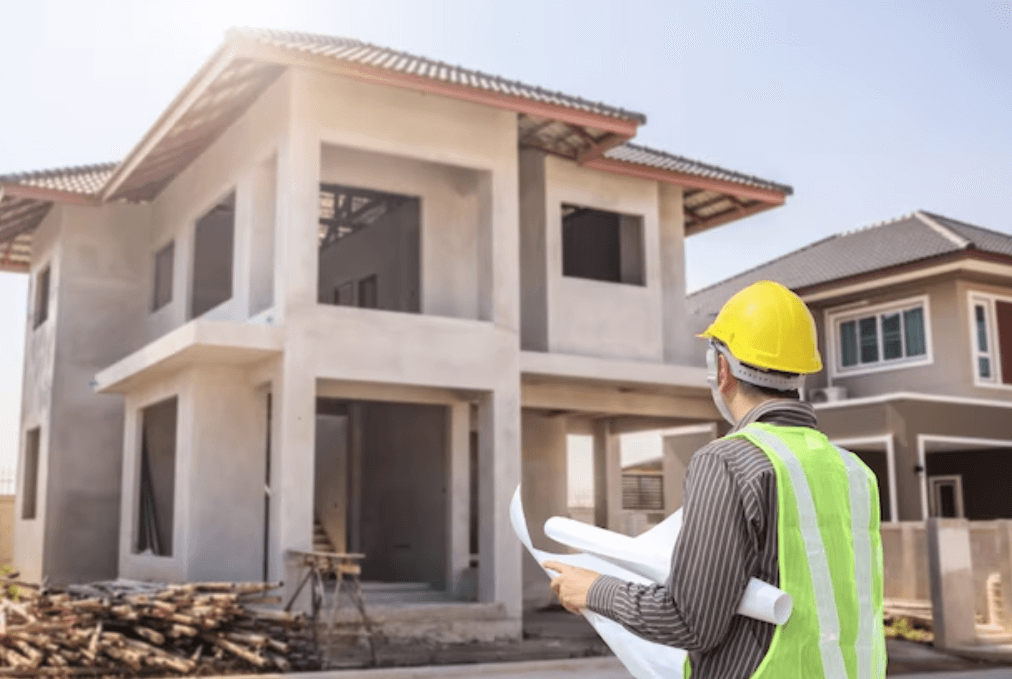
How Much to Build Different Types of Houses in the Philippines
After learning about the estimated cost to build a house in general, let us now delve deeper into different types of residential houses in the Philippines, including the estimated costs of these specific types of home constructions.
2-Storey House construction cost in the Philippines 2024
With the limited space available in Metro Manila and surrounding provinces, such as Rizal, Laguna, Cavite, Bulacan, and Pampanga, building a house with multiple storeys or floors can be a practical option if you wish to maximize the space of your lot.
And did you know that constructing a two-storey property can be a more cost-effective choice than building a one-storey house?
This is because the cost per square foot tends to be lower when you decide to build a two-storey home. Additionally, your construction team will spend less time on excavation and groundwork. Another financial benefit lies in the reduced need for roofing and foundation materials in a two-storey design.
If you are planning to build a two-storey house in the Philippines, the average cost is between Php 20,000 and Php 25,000 per square meter, according to PhilCon Prices, a Philippine-base website owned by a group of engineers offering a comprehensive guide to construction and material prices.(4)
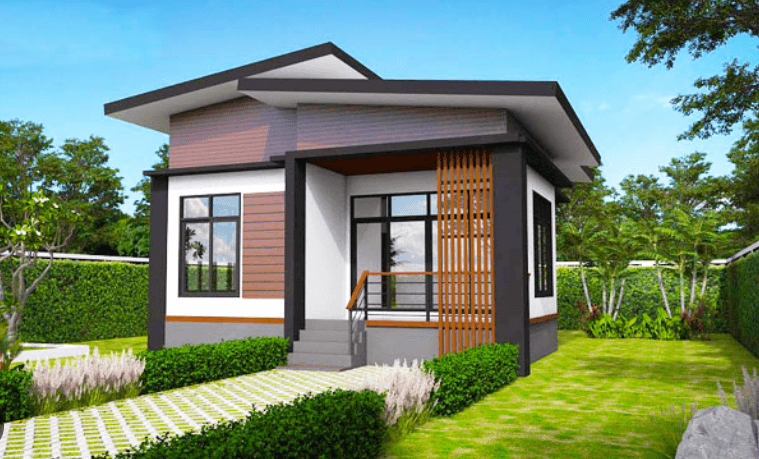
The Cost of Building a Bungalow or a Single-Storey House in the Philippines
A bungalow is a type of house characterized by a single storey, compact design, and low, horizontal profiles. Introduced by the Americans to the Philippines during their regime, bungalows are often designed with verandas and sloping roofs. They are popular for their practicality and efficient use of space.
Bungalow houses are popular in the provinces and in some private subdivisions in Metro Manila, where there is enough space to accommodate the long and wide profile of these properties. In the crowded spaces of NCR, it may be difficult or impossible to find ample land space for this type of property.
If, however, your dream home is a bungalow house, then you have to be aware that the average cost of building a single-storey house in the Philippines is about Php 8,000 to Php 20,000 per square meter.(5) For a property with a 120 to 130 sqm floor area, you may have to prepare a budget of about Php 2M to Php 3.5 M.(6)
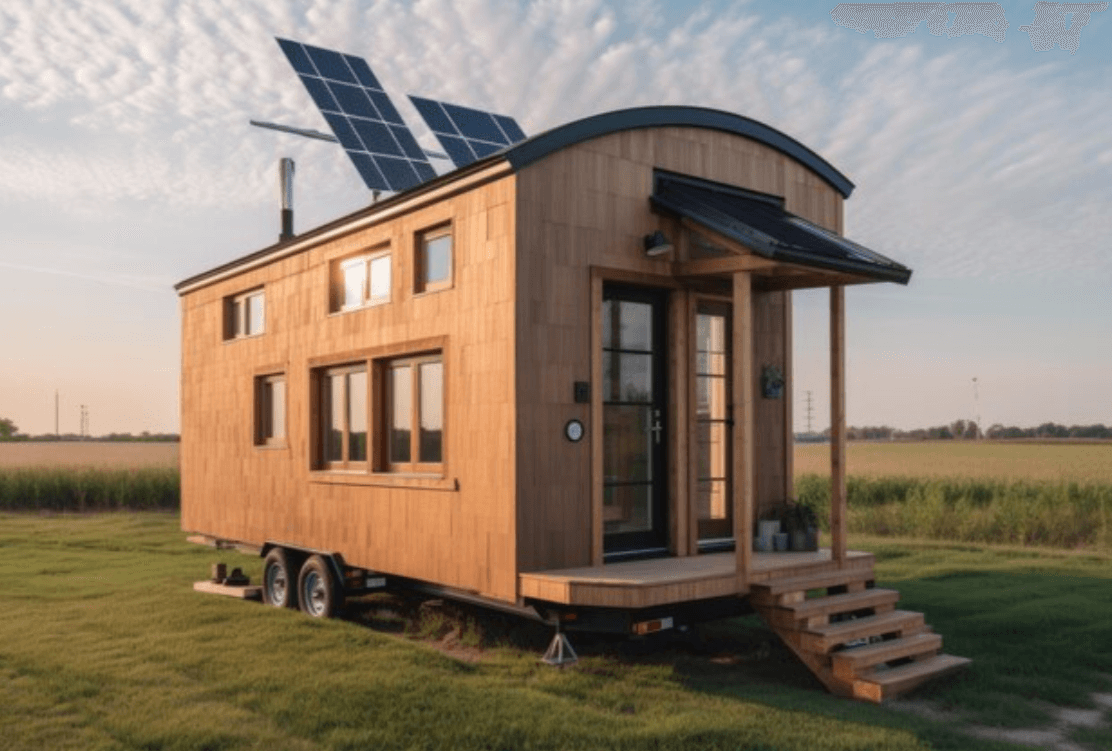
The Cost of Building a Tiny House in the Philippines
The tiny house concept started in the Western regions and has gradually entered the real estate industry of the Philippines. A tiny house is a compact and typically minimalist property that is significantly smaller in size than a traditional house or apartment in the Philippines. Not only is the concept budget-friendly, but it also encourages sustainability, minimalism, and reduced environmental impact.
Tiny homes are often constructed using cheap but durable, efficient, and eco-friendly materials. These include wood, steel, fiberglass, foam board, aluminum, composite, and other sustainable materials. One tiny house concept gaining popularity in the Philippines is the use of a shipping container and turning it into a stylish, comfortable home.
If this is the kind of house you would like to build, expect to shell out a budget of Php 150,000 up to Php 2M, depending on the size and material of your tiny home.
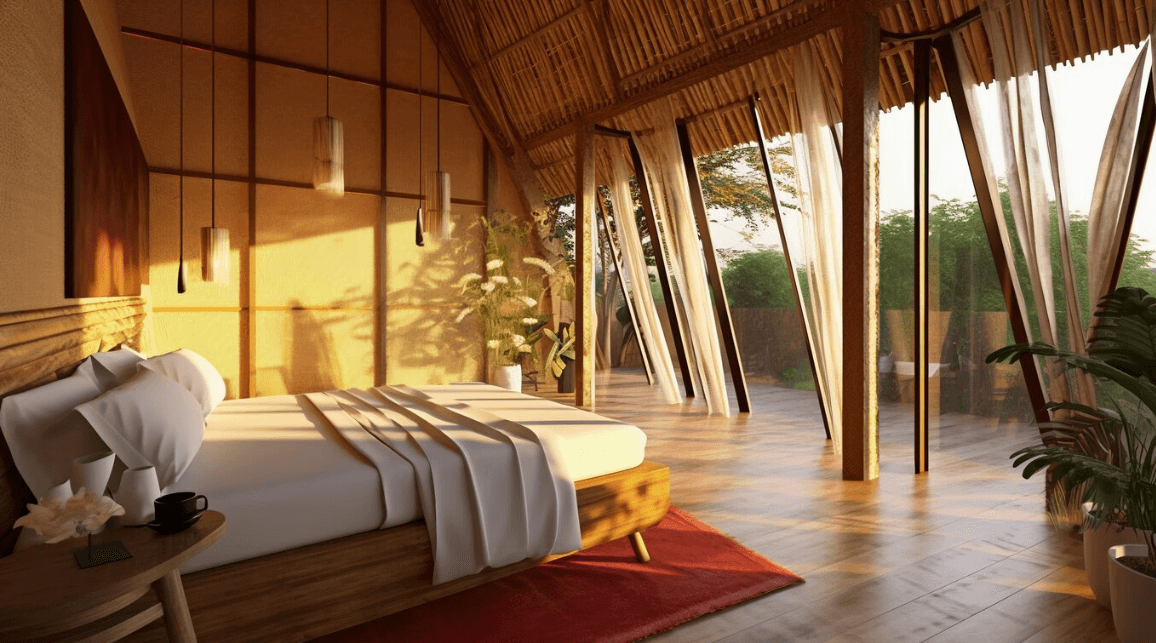
The Cost of Building a Bamboo House in the Philippines
Locally known as “bahay kubo,” a bamboo house is not only an indigenous form of dwelling place but an important cultural heritage and a distinguished national symbol for Filipinos. For budget-restricted individuals or those who wish to build a simple but versatile home in the province, a bamboo house is an excellent choice.
Bamboo is known for its versatility and sustainability. Its remarkable strength and durability, along with its rapid growth and availability in the country, make it the top choice of environmentally conscious builders for house construction. This is why bamboo-based properties are gradually becoming more and more popular.
If you are considering building a bamboo house in the Philippines, the average cost may fall anywhere between Php 200,000 and Php 1M, depending on the size and features of your bamboo house. (7) Ideally, a bamboo house can be completed in just one month.
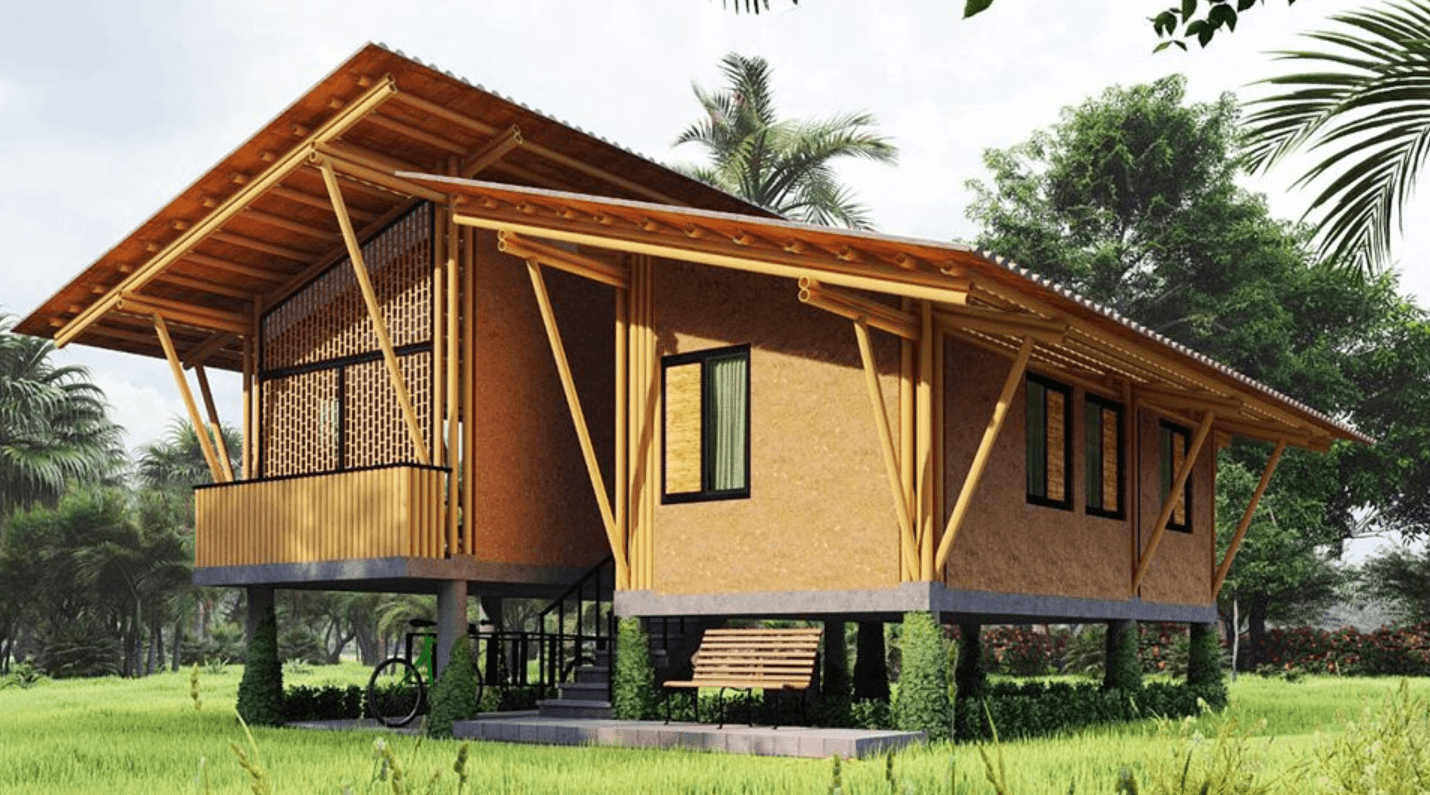
Quick and Easy Loans! Get the funds you need in just 4 minutes! Calculate the cost of your pre-approved loan and click ‘Apply Now’, join the high approval rate:
* Interest payments are approximate. The final loan amount and interest rate must be confirmed in your loan agreement after loan approval.
Summary of House Types and Houses Construction Costs
How much does it cost to build a house in the Philippines? If you’re still wondering, the answer primarily lies in the type and size of property you wish to build. Here is a summary of the different residential house types we discussed above, along with their construction costs.
| Type of Property | Cost Per Sq. Meter | Total Cost (including other expenses) |
|---|---|---|
| Two-Storey House | Php 20,000 to Php 25,000 | Php 2M to Php 4M |
| Bungalow / Single-Storey House | Php 8,000 to Php 20,000 | Php 1M to Php 3.5M |
| Tiny House / Shipping Container House | Php 9,000 to 10,500 | Php 150,000 to Php 2M |
| Bamboo House / Nipa House | Php 8,500 to 9,500 | Php 200,000 to Php 1M |
By having a clear and straightforward view of the house construction cost per square meter (Philippines, 2024), you can make an informed decision about the type of dream house you are planning to build and how much budget should you allocate to the construction project.
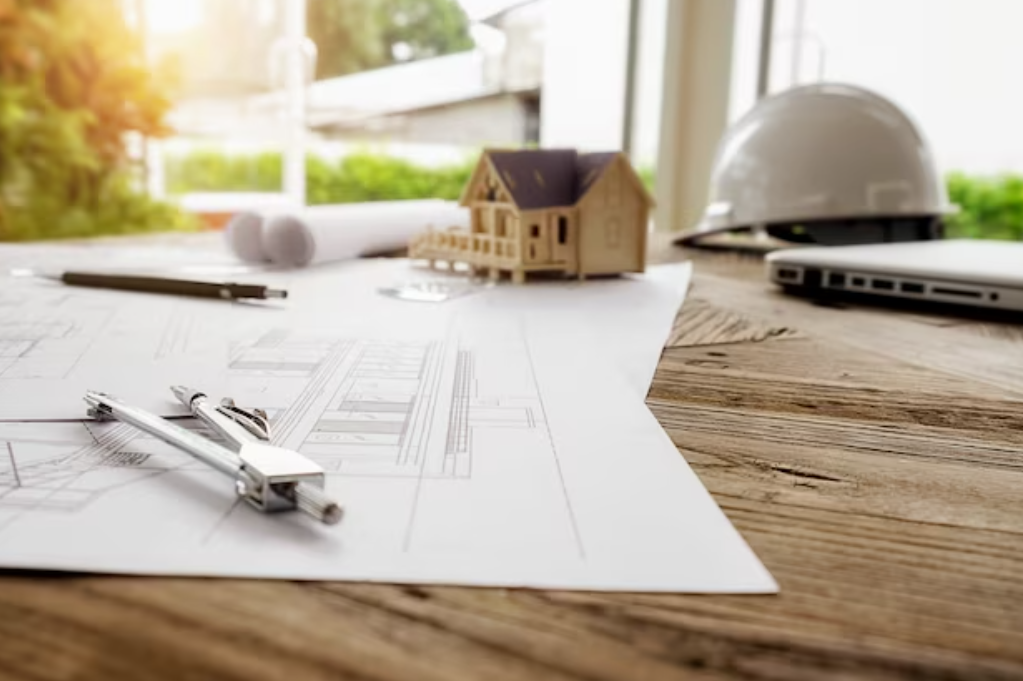
Factors that Affect the House Construction Cost
Building a house in the Philippines can be challenging and complicated, especially with many factors affecting the cost of your construction project. Below are the common things that you need to consider very carefully because they can significantly increase the cost of your dream home.
1. Location
The region, province, city, and exact geographical location of your dream home are crucial factors in determining the actual cost of your construction project. Building a house in the province is much cheaper than in Metro Manila. Additionally, choosing prime business districts like Makati and Taguig city is more expensive than opting for a house in less-crowded cities such as Novaliches or Caloocan.
Local building codes and regulations can also impact costs, as can the proximity of suppliers and contractors.
2. Construction Method
Your preferred construction method can also greatly influence the cost of building a house. Different methods have distinct cost implications. Whether you choose traditional stick-built construction, modular construction, or steel frame construction, each has different cost requirements that may make your total expense higher or lower than your estimated cost. Additionally, some methods may require more skilled labor or specialized equipment, so make sure that you do your research first before making a decision.
Here are the most prevalent construction methods in the Philippines:
- Wooden Frame — Environmentally friendly and suitable for residential, commercial, and industrial edifices.
- Concrete — Highly favored in civil construction due to its capacity and strength to bear weight.
- Masonry – Durable and fire-resistant; incorporates various materials like bricks, concrete blocks, and stones bonded together.
- Hybrid — A blend of diverse construction materials and techniques; prefabricated materials are often utilized, making this choice more cost-effective, versatile, and efficient.
- Steel Frame — Commonly employed for commercial buildings, but now also adopted for residential ventures despite its cost, owing to its thickness and resilience.
3. Number of Floors
Another key determinant of construction costs is the number of floors of your residential unit. Additional floors typically mean using more materials and creating better structural components, and additional labor is required—all of which may increase the cost of your home construction. Single-storey homes, therefore, are generally cheaper to build compared to multiple-storey structures.
4. Size and Architectural Design
The total square footage or floor area of your home is one of the most significant factors in determining the cost of residential construction. Bigger homes typically require more materials and labor, while smaller homes can be completed with less materials and time.
Additionally, the complexity and uniqueness of the architectural design can also impact the overall cost. Intricate designs with unconventional shapes or features may require more labor and specialized materials, while an open floor design will not require as much materials and construction work.
5. Number of Bathrooms
The construction of bathrooms in a house typically takes a big share of the construction expenses because it involves plumbing works, fixtures, tiling, and ventilation systems. Therefore, the more bathrooms you plan to have in your residential property, the higher the cost of your residential construction project.
6. Windows, Roof, and Flooring
The choice of windows, roofing materials, and interior finishes you have for your home can affect your construction costs. For instance, larger and custom-made windows can be more expensive. Complex roof designs may require more labor. Hardwood floors can drive up costs compared to more basic options.
7. Type of Materials
The type of construction materials you choose can also impact the overall expenses of your residential construction project in the Philippines. Choosing high-quality and premium materials can add more to the costs while opting for basic or standard options can reduce your expenses. It is, therefore, important for you to choose the right materials for the foundation, framing, roofing, insulation, siding, and interior finishes of your home according to your desired results and the look of your dream home.
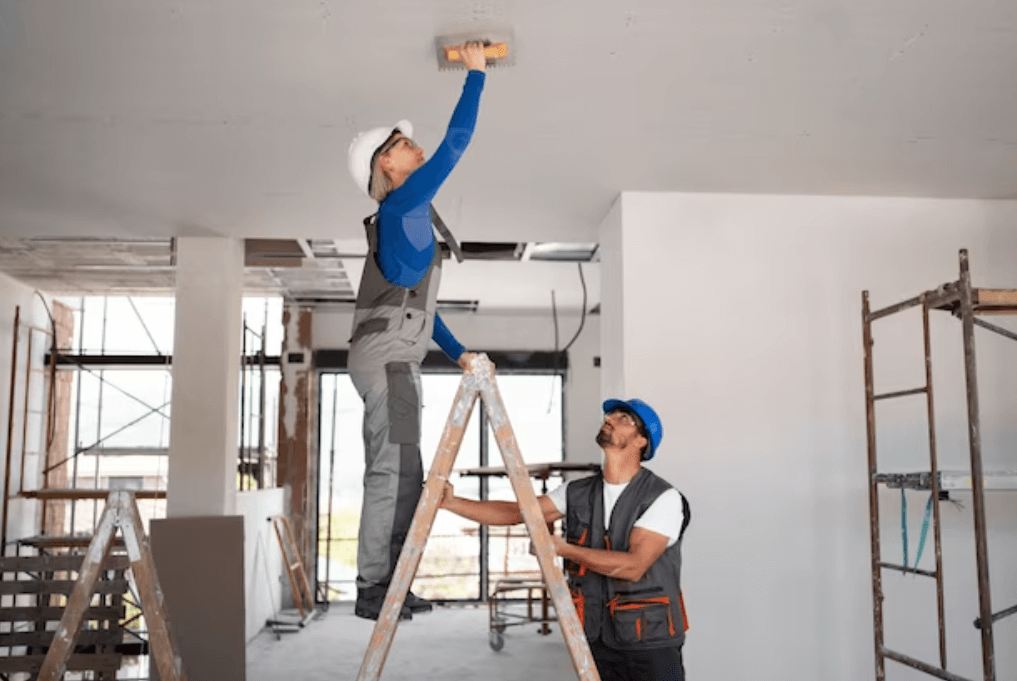
8. Types of Finish
The cost for finishing work can range from 20,000 to 40,000 pesos per square meter, and might escalate depending on the materials chosen.
The overall cost of building a house in the Philippines is also affected by the type of finish you wish to have for your dream home. For instance, if you choose to have upscale finishes, like hardwood flooring, granite countertops, and custom cabinetry, expect to have a higher construction cost compared to opting for a plain or basic finish. Standard finishing often entails painted walls and windows with aluminum frames, along with the use of granite or ceramic tiles.
9. Labor Cost for Construction in the Philippines
Though they might appear to be a smaller expenditure, labor costs actually constitute a significant portion of the overall house construction budget, ranging from 20% to 40%.
Calculating labor costs for construction projects in the Philippines can be done by considering the hourly or daily wages of construction workers. As per engineering insights, the typical construction labor cost in the country spans from 280 to 815 pesos on a daily basis (or 35 to 95 pesos hourly). Therefore, to estimate your labor costs, simply multiply these figures by the total hours worked.
Labor costs are also a major component of construction expenses. Factors such as location, demand for skilled workers, and local wage rates make labor costs vary from one place to another. For instance, labor costs in Metro Manila are definitely higher than those in the Visayas and Mindanao regions. Furthermore, the construction firm, contractor, and project manager you choose to work with can also influence the cost of labor and overall construction expense of your residential property.
10. Architect Fees for Residential Design in the Philippines
The services of an architect are essential for designing and planning a residential building. These fees cover services such as design development, drawings, project management, and coordination with other professionals involved in the construction process.
When planning your budget for house construction cost Philippines projec, it’s crucial to factor in the costs for house design services. The United Architects of the Philippines (UAP) suggest a professional fee equivalent to 10% of the total cost of house construction. This rate for architectural and engineering design services is applicable to a variety of housing types including single-detached homes, duplexes, row houses, townhouses, and small apartment buildings
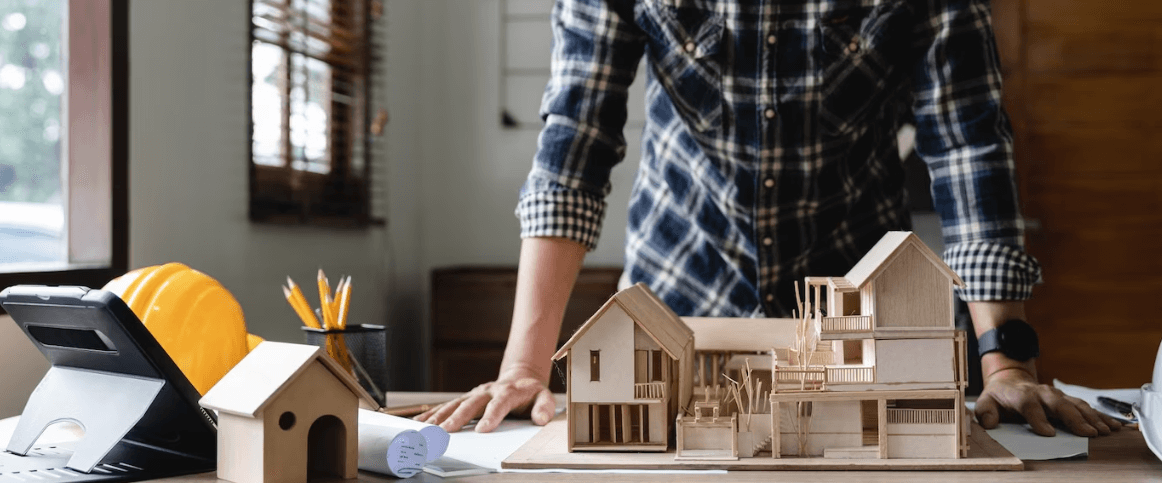
What Do You Need to Build a House in The Philippines?
Building a house in the Philippines is more than just knowing how much will be your total construction expenses. You should also be aware of the legal requirements and documents you need to prepare to be able to build your dream home.
1. Permits and Licenses
Before you start the construction of your house in the Philippines, it is important that you prepare all necessary permits and licenses. These include:
- Building permit
- Affidavit of consent from the owner or contract of sale (if you are not the owner of the land)
- Lot survey care of the subdivision
- Soil exploration or soil bore test
- Barangay clearance
- Special Power of Attorney (if you do not currently live in the Philippines)
Land of ownership documents:
- Land titles
- Deed of sale
- Tax declaration
- Latest tax receipts
- Environmental clearance
Note that the local government may also ask you for other requirements for height limitations, setbacks, and other aspects of the construction process. Working with an experienced professional who is familiar with the local regulations can help you with all the documents and requirements you need to prepare for house construction Philippines.
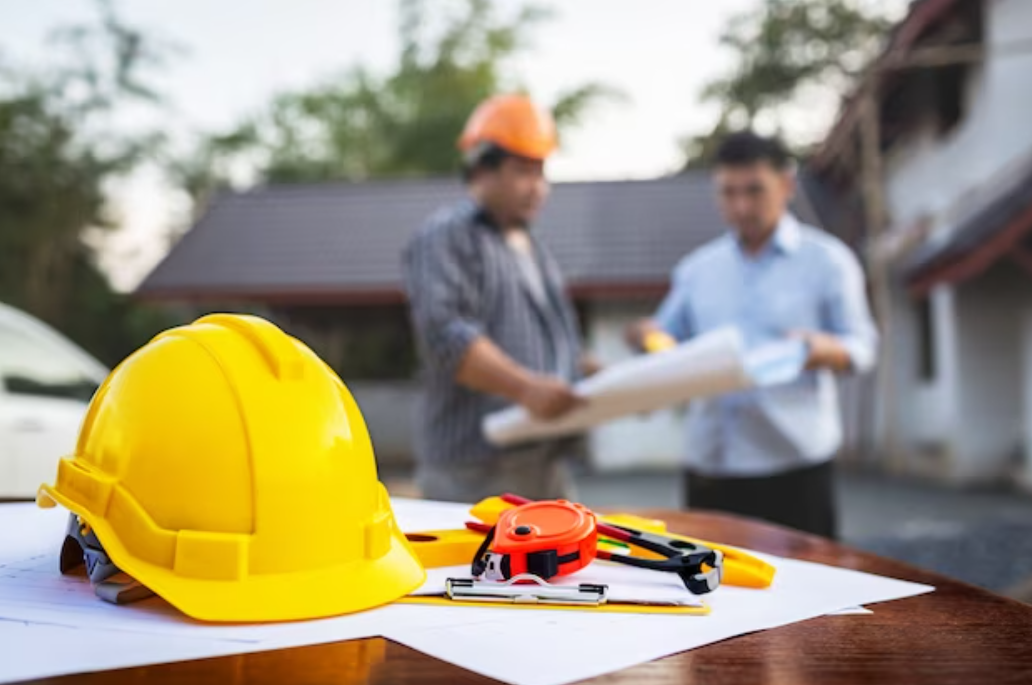
2. Hiring a Team of Professionals
To help you with the construction of your dream home in the Philippines, you need to hire professionals to help you navigate through the complex construction process. This includes hiring an architect who will design your house and create blueprints, a contractor who will oversee the entire construction process, and a project manager who will ensure that every step of the project is executed according to time and budget.
3. Budget
It is important to know the estimated cost to build a house in the Philippines so that you can prepare the budget for it beforehand. Depending on the location, size, and design of your dream home, and other critical factors, the cost of building a house in the Philippines varies. As a guide, the average house construction cost per square meter Philippines is Php 8,000 to Php 30,000 and up.
Cost Ranges Based on Housing Projects:
- Low-cost housing projects: PHP 8,000 to PHP 25,000 per square meter.
- Mid-range residential projects: PHP 30,000 to PHP 35,000 per square meter.
- High-end luxury homes: PHP 35,000 to over PHP 50,000 per square meter.
- Custom-built homes: PHP 28,000 to PHP 50,000 or more per square meter, depending on the project’s complexity and desired features

4. Insurance
Having insurance is also important when building a house to protect your investment, manage potential risks, and help you comply with local regulations. The most common types of home construction-related insurance in the Philippines include the following:
- Construction All Risk Insurance (CAR)
- Builder’s Risk Insurance
- Liability Insurance
- Homeowner’s Insurance
- Flood Insurance
- Earthquake Insurance
- Personal Property Insurance
While you are not required to have all of these, they can give you peace of mind in case anything happens during the construction of your home in the Philippines.
5. Materials
Finally, before starting your residential home construction project, make sure that all necessary materials, fixtures, accessories, and tools for your dream home are ready. These include materials for the foundation, roofing, walls, floors, bathroom, and finishes among many others. It is important that you work with professionals in choosing the best materials for your home so that you can ensure the quality, durability, and your preferred designs.

Tips on How to Stay Within Budget When Building a House in the Philippines
While building your dream home can be a significant investment, the reality is that it can be very expensive. To ensure that you stay within your budget during the construction process, here are some tips that you can follow:
- Before you begin with the project, set a realistic budget that details all expected costs and expenses, including possible unforeseen events. Include labor costs, materials, permits, and unexpected contingencies.
- Carefully plan and design your home to optimize the use of space. Work with a reliable architect to achieve a design according to your goals and preferences. Alternatively, you may opt for using pre-designed or standardized house plans. These plans are often more cost-effective because they have been used and tested before.
- Choose construction materials that meet your needs without exceeding your budget. If you do your research well, you can find high-quality yet budget-friendly construction materials. Moreover, buying in bulk sometimes offers discounted prices, so find the right suppliers that offer promos like this.
- Consider building a smaller home with a more efficient layout. Smaller homes typically require less material, labor, and energy to build and maintain.
- Keep the design simple. Complex and unusual designs tend to increase the construction cost of your property.
- Before hiring a team, get multiple quotes from different contractors and subcontractors first to ensure that you’re getting the best prices for labor and materials. Be sure to check references and verify the quality of their work.
- If you have a limited budget, consider building your home in phases. Prioritize the critical areas and then expand as your budget allows.
- Consider using factory-built components like trusses, wall panels, or cabinets, which can save time and labor costs.
- Avoid making last-minute changes during construction, as this can really be costly. Plan and finalize your design and materials early in the process to avoid costly alterations.
- While you don’t have to monitor the project every minute, it is important that you conduct regular quality inspections of the construction site to ensure the work is proceeding correctly and according to the plan. This will also help you catch any issues early and prevent costly rework.
Remember that while saving money is important, it’s also crucial to ensure that your dream home is safe, durable, and comfortable. Never sacrifice quality for cheap costs. The important thing is to balance cost savings with the quality and functionality of your home.

Taxes and Other Fees to Pay After Your House Construction
In the Philippines, upon the culmination of house construction, several taxes and fees are requisite to ensure the legal and functional transition of ownership and habitation. Below are the pertinent financial obligations related to house construction:
- Local Transfer Tax:
Cost: Ranges from 0.50% to 0.75% of the property’s selling price or fair market value, whichever is higher.
This tax is mandatory for the transfer of ownership from the seller to the buyer, with the exact rate determined by the local regulations of the city or municipality where the property is located. - Documentary Stamp Tax:
Cost: 1.5% of the selling price or fair market value, whichever is higher.
The documentary stamp tax is levied on documents such as the deed of absolute sale, which delineates the sale or transfer of the property. - Real Property Tax:
Cost: Up to 2% (in Metro Manila) or 1% (in the provinces) of the assessed property value.
Known locally as “amilyar,” real property tax is an annual fee paid to the city or municipal treasury office, applicable to both condominiums and houses and lots. - Mortgage Registration Fee:
Cost: Variable, depending on the property’s appraised value.
Upon the approval of your home loan, a mortgage registration fee is due for the registration of the Deed of Absolute Sale with the Land Registration Authority (LRA) or the local Registry of Deeds.
These financial requisites are crucial to ensure the legality and completeness of the house construction process in the Philippines, and should be meticulously accounted for in the budgeting phase of the project.
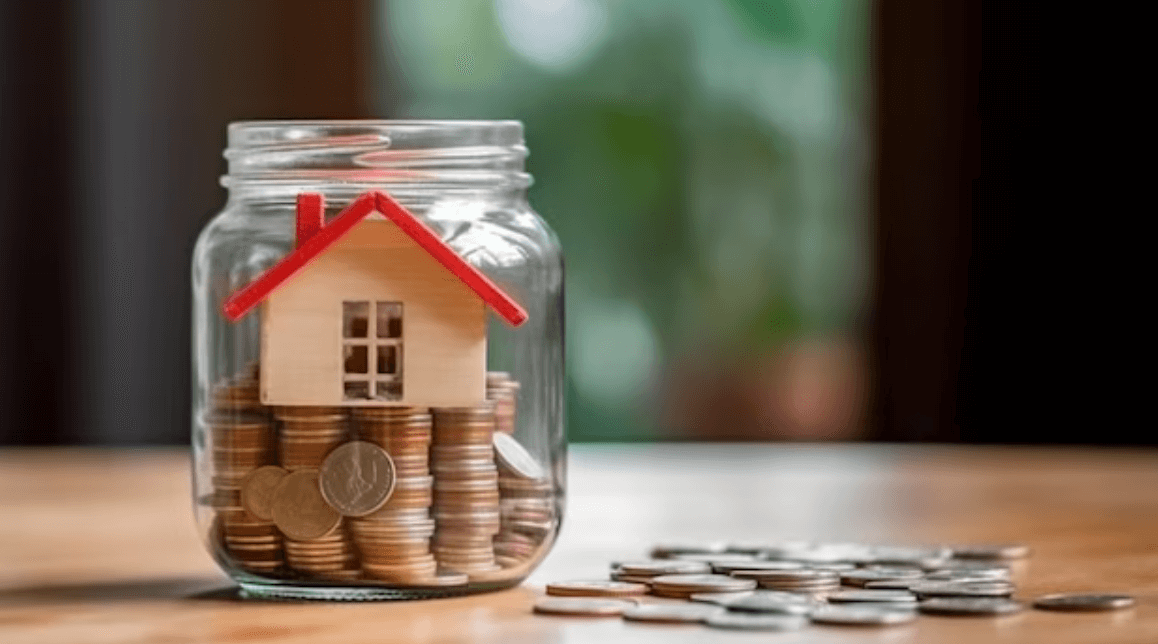
Sample Estimated Cost to Build a House in the Philippines
Here is a sample estimated 2-storey house construction cost in the Philippines:
A. Project Details
- Location: Metro Manila
- Size: 150 square meters (1,615 square feet)
- Design: A simple two-storey house with three bedrooms, two bathrooms, a living room, a kitchen, and a small front porch.
- Materials: Standard quality construction materials
- Construction Method: Conventional construction (not prefabricated)
- Inclusions: Electrical and plumbing systems, basic finishes (ceramic tiles, painted walls), standard roofing, and basic landscaping.
B. Estimated Cost Breakdown
- Labor and Construction: Approximately PHP 2,000,000 to PHP 2,500,000
- Materials (including foundation, framing, roofing, flooring, and interior finishes): Approximately PHP 1,800,000 to PHP 2,000,000
- Architect and Engineering Fees: Around 6-8% of the construction cost, which is PHP 180,000 to PHP 240,000.
- Permits and Licenses: About PHP 50,000 to PHP 100,000, depending on local regulations and permit fees.
- Utilities and Connection Fees: Approximately PHP 50,000 to PHP 80,000.
- Contingency (5-10% of the total cost): PHP 150,000 to PHP 300,000.
- Land and Lot Development: This cost can vary significantly based on the location and condition of the land. It may also not be applicable in some cases.
- Total Estimated Cost: Approximately PHP 3,900,000 to PHP 5,100,000
C. Disclaimer
Note that this is just a sample estimated cost. Actual pricing can vary based on location, market conditions, specific design choices, and individual preferences. It’s essential to obtain a detailed quote from local contractors and professionals to get a more accurate estimate tailored to your specific conditions and preferences.
Additionally, make sure that you also account for potential cost overruns and include a contingency budget for any unexpected problems that may occur.
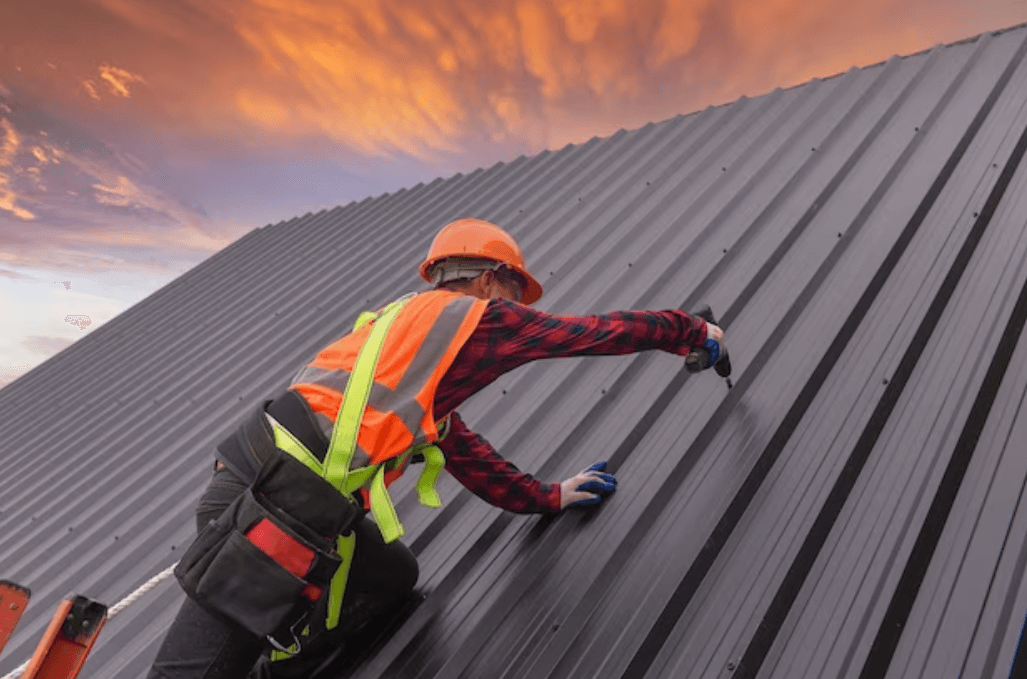
Key Takeaways
- The actual cost varies depending on several factors, including location, size, and design of your dream home, materials, finishes, and number of floors among several others.
- As a guide, the average home construction cost per square meter in the Philippines ranges from Php 8,000 to Php 30,000. Building a house in Metro Manila is much more expensive than choosing a provincial location.
- Factors that affect construction costs include location, construction method, number of floors, number of bathrooms, size and architectural design, windows, roofing and flooring, types of materials, types of finish, labor costs, and architectural fees in the Philippines.
- Before starting your residential construction project, make sure that you have prepared all necessary legal documents and requirements. Hiring a team of professionals, securing the appropriate insurance plans, preparing your construction budget, and purchasing the right materials are also the things you have to do before commencing the construction of your dream home
- To ensure that you stay within your budget there are several tips you can follow when building a house in the Philippines. These include setting a realistic budget, planning carefully, choosing quality but budget-friendly materials, and keeping the design of the house simple among many others.
- The average cost per square meter for residential construction in the Philippines in 2024 is estimated to be around Php 11,232.88, while commercial construction cost per square meter is around 10.86 thousand Philippine pesos1.
Typical construction costs for houses in the Philippines in 2024 range between 23,000 PHP and 35,000 PHP per square meter
Articles sources
- 1. Average cost per square meter of residential constructions in the Philippines from 1st quarter 2020 to 1st quarter 2023
- 2. What You Need to Know About House Construction Costs in the Philippines
- 3. Cost of Building a House in the Philippines
- 4. Average Construction Cost for Two-Story Houses in the Philippines
- 5. Average Construction Cost to Build a House
- 6. How Much We Spent Building Bungalow House in Philippines
- 7. How Much Does it Cost to Build a House in the Philippines


